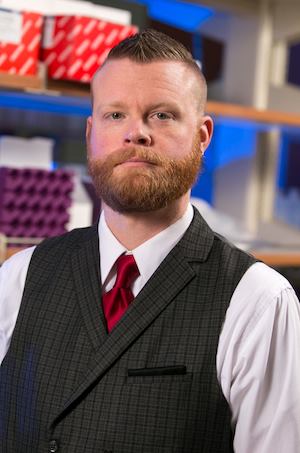Medical Physics Seminar – Monday, April 6, 2015
A novel high-throughput irradiator for in vitro radiation sensitivity bioassays

Tyler Fowler, MS (student of Dr. Bryan Bednarz)
Research Assistant, Medical Radiation Research Center, Dept of Medical Physics, UW-School of Medicine & Public Health, Madison, WI - USA
Given the emphasis on more personalized radiation therapy there is a ongoing and compelling need to develop high-throughput screening tools to further examine the biological effects of ionizing radiation on cells, tissues and organ systems in either the research or clinical setting. Conventional x-ray irradiators are designed to provide maximum versatility to radiobiology researchers, typically accommodating small animals, tissue or blood samples, and cellular applications. This added versatility often impedes the overall sensitivity and specificity of an experiment resulting in a trade-off between the number of absorbed doses (or dose rates) and biological endpoints that can be investigated in vitro in a reasonable amount of time. Therefore, modern irradiator designs incompatible with current high-throughput bioassay technologies. Furthermore, important dosimetry and calibration characteristics (i.e. dose build-up region, beam attenuation, and beam scatter) of these irradiators are typically unknown to the end user, which can lead to significant deviation between delivered dose and intended dose to cells that adversely impacts experimental results. Therefore, the overarching goal of this research is to design and develop a robust and fully automated high-throughput irradiator for in vitro radiation sensitivity investigations.Additionally, in vitro biological validation of this system was performed by assessing intracellular reactive oxygen species production, physical DNA double strand breaks, and activation of cellular DNA repair mechanisms. Currently the high-throuput irradiator is being used to investigate autophagic flux, a cellular adaptive response, as a potential biomarker of radiation sensitivity.